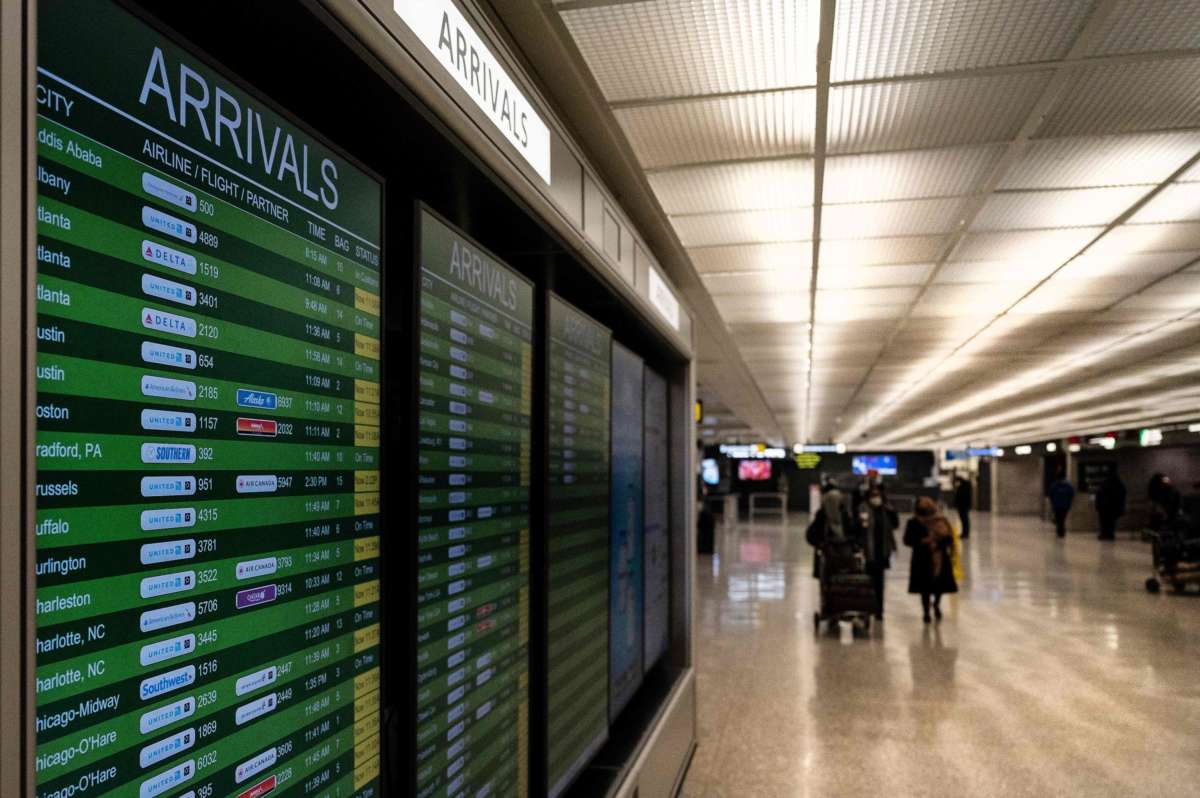Did you know that Truthout is a nonprofit and independently funded by readers like you? If you value what we do, please support our work with a donation.
As wealthy nations around the globe impose travel restrictions on southern African countries due to the emergence of the Omicron coronavirus variant, several health officials and government leaders have warned that such moves will do more harm than good.
Scientists estimate that there are likely thousands of cases of Omicron in southern Africa, and possibly tens or hundreds of thousands more around the world. Indeed, cases of the variant have already been found in Canada.
But although it seems likely that the variant has already spread, a number of countries, including the United States, have placed travel restrictions on southern African countries. The U.S restrictions apply to South Africa, Botswana, Zimbabwe, Namibia, Lesotho, Eswatini, Mozambique and Malawi.
President Joe Biden defended his administration’s decision to enact a ban on Monday, saying it was necessary to give people more time to react to the news of an additional variant.
“It gives us time to take more actions, to move quicker, to make sure people understand you have to get the vaccine,” Biden said in a statement from the White House, adding that the Omicron variant “is a cause for concern, not a cause for panic.”
Medical experts rejected the idea of banning travel from those countries, and said wealthier nations were partially to blame for hoarding vaccines and failing to distribute them to the rest of the world.
“It feels like these rich countries have learned absolutely nothing in terms of support,” said Francois Venter, a researcher at University of the Witwatersrand in Johannesburg.
Jennifer Nuzzo, an epidemiologist at Johns Hopkins University, agreed.
“I don’t think the travel bans really have much of an impact, other than answering the political pressures that inevitably arise when a new variant emerges,” Nuzzo said.
Experts also noted that other variants that have come about since the start of the coronavirus pandemic haven’t resulted in significant travel bans the way Omicron has for African nations.
“These restrictions are completely unjustified and unfairly discriminate against our country,” said South Africa President Cyril Ramaphosa.
The bans could hinder future efforts to address variants that may come about later on, as other nations that detect changes to the virus may see no positive reason to share their findings with the international community.
“What is the incentive for the next country that identifies the next important variant if their reward is what President Biden did to South Africa?” asked Amesh Adalja, an infectious diseases expert at Johns Hopkins University.
The World Health Organization (WHO) has said that Omicron has a “very high” global risk that is “concerning,” as it “may be associated with immune escape potential and higher transmissibility” due to having a wide range of mutations compared with other variants. But the organization, too, said that travel bans in response to the variant’s emergence are inappropriate.
“Travel restrictions may play a role in slightly reducing the spread of Covid-19 but place a heavy burden on lives and livelihoods,” said Matshidiso Moeti, WHO’s regional director for Africa.
“With the Omicron variant now detected in several regions of the world, putting in place travel bans that target Africa attacks global solidarity,” Moeti added.
A terrifying moment. We appeal for your support.
In the last weeks, we have witnessed an authoritarian assault on communities in Minnesota and across the nation.
The need for truthful, grassroots reporting is urgent at this cataclysmic historical moment. Yet, Trump-aligned billionaires and other allies have taken over many legacy media outlets — the culmination of a decades-long campaign to place control of the narrative into the hands of the political right.
We refuse to let Trump’s blatant propaganda machine go unchecked. Untethered to corporate ownership or advertisers, Truthout remains fearless in our reporting and our determination to use journalism as a tool for justice.
But we need your help just to fund our basic expenses. Over 80 percent of Truthout’s funding comes from small individual donations from our community of readers, and over a third of our total budget is supported by recurring monthly donors.
Truthout has launched a fundraiser to add 340 new monthly donors in the next 5 days. Whether you can make a small monthly donation or a larger one-time gift, Truthout only works with your support.
